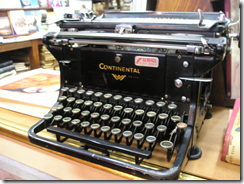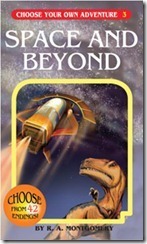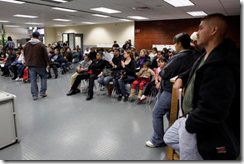Elizabeth Spann Craig's Blog, page 209
April 6, 2011
Acknowledgments
 I have to admit that I enjoy reading author acknowledgments.
I have to admit that I enjoy reading author acknowledgments.
These days, a book is really a collaborative effort between a lot of different people operating behind the scenes. At least, these folks are behind the scenes until they're put on the acknowledgments page of a book. :)
These pages were really useful for me when I was researching publishers and agents—because agents and editors are always thanked (or should be) by published writers.
Now I think they're just fun to read. For me, they're a window into the writer's world and the people who are part of it. Plus, it's usually the only personal note directly from the author. For that reason, I've always enjoyed reading them.
The acknowledgments can be tricky for me. I want to make sure I haven't left anyone out, but I also don't want to go on and on as if the page was an Academy Award speech.
There's usually a little list I try to go through in my head to make sure I haven't left anyone out:
Agent
Editor
Agent assistant or Editorial assistants (anyone I know by name)
Anyone who helped with research/sources
Family who put up with me while I was writing. :)
First readers
Writing mentors
People (teachers, etc.) who provided encouragement or support
Do you read the acknowledgments in books? Can you think of any other people who should be included in a list of whom to thank?
April 5, 2011
The Pleasure of Writing
 I've been absolutely slammed with activity the last couple of weeks and it doesn't look like it's letting up until maybe another week down the road.
I've been absolutely slammed with activity the last couple of weeks and it doesn't look like it's letting up until maybe another week down the road.
I was running errands on Monday when I remembered my son had asked me to pick up some nonfiction books for a paper he's writing on typhoid and the American Civil War, so I made a detour into the library.
I pulled out a bunch of books and was about to check them out and scurry off again for more errands when I noticed how peaceful the library was. It was about 11:00 in the morning and there were only adults quietly reading or researching on the second floor of the Morrison Library. I pulled out my notebook from my pocketbook and took a seat.
And just like that (and I'm not a sentimental person) but the craziness of the past week melted away and I felt complete joy.
The funny thing is that I can't really explain why writing is so enjoyable. It's almost like I'm a kid again—pretending. That was fun, too. Except that, as a grown-up, you can't actively go around making things up and pretending….unless you're a writer. Then it's allowed—and encouraged.
Sometimes, the writing isn't as fun. Sometimes the deadlines and the promo and the worry over the story make me forget the fun. Sometimes writing is tedious. Sometimes I'm scared to death that the ideas won't come as obligingly as they always have. Sometimes I look at my publishing contracts and think that I'm just a business person after all, and not a creative person.
To forget the bad parts, when I feel that surge of---well, it's almost an endorphin rush of elation, I remember it. I hold onto it. Ultimately, the reason I keep on writing is my love of writing. The left-brained part of the equation is a more calculated plan involving the readers and what the readers would enjoy reading. That's important, too. But it's my love of writing that keeps me going.
The headlines have been rough lately for writers—bookstores closing, confusing choices to make, a changing future for books. What I keep going back to is the writing itself.
Because even a bad day writing is better than a good day spent doing most other things.
What keeps you writing?
April 4, 2011
Preparing for a Book Club Talk
 In a couple of days, I'm speaking to a book club about my book, Pretty is as Pretty Dies.
In a couple of days, I'm speaking to a book club about my book, Pretty is as Pretty Dies.
It's been a bit of a busy week with field trips, birthday parties, and other activities. So now I'm trying to make sure I'm ready to talk to the book club.
For me, it's all about preparation whenever I'm speaking in public. If I'm not prepared or don't feel like I'm prepared, I'll definitely get flustered.
There are usually two different types of book clubs that I've come across. One type is very casual and you sit in a circle with the other members and engage in the general discussion. The other type is more structured—you'd give a talk about the book or writing or both, followed by a question and answer session.
It's good to know what to expect before you go. This sounds like a no-brainer, but I've been surprised before by groups that functioned as covered-dish suppers/book clubs and felt like I should have brought something (although I was assured I didn't need to.) You might want to ask if you should prepare a talk (and on what subject), or if it will be a more laid-back program.
I never charge a book club for an appearance—to me, it's enough that they've bought my book. But I usually have to regret if the club meeting is too far away…travel expenses have definitely gone up.
I bring small things to give away—bookmarks, magnets, postcards, pencils, etc., Candy is always popular. :) Sometimes I'll bring something larger--a door-prize type gift that I pull out of a hat.
If you have a newsletter, you could bring a signup sheet to collect emails to notify readers of your upcoming releases, etc. Be sure you're being upfront that the list is for a newsletter…and that they can unsubscribe whenever they'd like.
Carry the address of the venue with you and the organizer's cell phone number. Frequently the club meetings are in someone's house and it's easy to get lost. I'll program the address in my GPS, but I have a backup on paper—and I keep the organizer's cell phone number close by, just in case.
Look nice. I usually am dressed nicer than everyone else, but it makes me feel better than being underdressed. And if I dress well, the book club members know that I treated their meeting like a special event and dressed accordingly.
Review your book before you go. Or your cheat sheet on the book. I have a Word document that covers characters and plot twists in great detail. It's easy for me to forget things, especially when I'm under a little pressure. And the book club will have just read the book. It's not good for them to know more about the book than we do!
The questions I get from book clubs are different from the questions I get from writers. (I receive more questions about the book's characters—are they based on real people? What do those people think of my books? etc). I'm prepared to talk more in depth about my characters and their motivations. I'm also prepared to talk about small plot points in the book.
The book club might find hidden meaning in your book…that you didn't intend. I usually just smile and nod when this happens. :) Who knows—maybe I subconsciously included symbolism?
People may challenge you on your book. I think this has happened at every book club meeting I've ever been to. If you're speaking to a big group (15-20 people or more), then you really need to expect some criticism from someone.
Someone may not like a character or might find a continuity error or could disagree with a position they think you're taking in the book. I just roll with it and don't take it personally. Remind yourself going in that you're not there to get defensive about your book…you're discussing it. Most times everyone is very nice, even if they're bringing up a point they didn't like or a problem they had. The more professionally we can handle this kind of situation, the better we look in the end.
They will ask what you're working on next. Practice a succinct summary. If you're writing the first part of your draft or would rather not talk about your book, you could just briefly answer that you're working on a follow-up to the book they read, or that you're working on a new project that's very different from the one they just finished.
Bring extra books. If you have other books, bring them, too. Sometimes, book club members will ask you to sign a book for them to give as a gift. You'll also need to bring ones, in case you need to make change.
I enjoy book clubs because they're frequently the only times I get to meet with readers in person (conferences are mainly made up of writers). Have you talked to book clubs before? Got any additional tips?
*************************
Interested in a monthly newsletter with the top writing articles, blogger spotlights, and interviews with industry insiders? Sign up for the free WKB newsletter here: http://hiveword.com/wkb/newsletter . (You can unsubscribe at any time, and your email information is never shared.)
April 3, 2011
On Dialect
 On Saturday, my son had a paintball party for his 14th birthday. The paintball fields were run by a company in a rural area about 45 minutes from Charlotte.
On Saturday, my son had a paintball party for his 14th birthday. The paintball fields were run by a company in a rural area about 45 minutes from Charlotte.
While we were out there, there was another group playing simultaneously—a group of 12 year old girls from a private school in the Charlotte area.
One of the girls from the other group had a problem with her paintball gun and handed it to the referee, an employee for the paintball company.
He fiddled with it for a while, then called her over. What he said (and the cigarette dangling out of his mouth didn't help, either) sounded like this: "It ain't dooin' it no moah."
"Excuse me?" the 12 year old private school girl asked.
He repeated it.
"I'm sorry…could you say that again?" I could tell she was listening very, very hard now.
He repeated it. The same way without trying a different approach.
"I'm sorry?" She looked at me for help translating.
"It's fixed," I said.
I don't know if it was the double-negative, the ain't, the poor grammar, his very thick Southern accent, or the cigarette, but she couldn't understand a word the young man said.
The fact that she had to work that hard and still couldn't figure out what he was saying perfectly illustrates my reasoning for not writing (much) Southern dialect in my very Southern books.
I think it's best to go light on dialect and instead try using phrases, idioms, and word choices that locals of an area would use. For me, I'd rather stick with the rhythm of Southern speech (it has a definite lilt and pattern) than take a stab at phonetic spelling (which would be really tiresome for a reader.)
Yes, Southerners drop consonants like crazy. A Southern drawl can string out a short word into an 8 syllable one.
It would get old to read. And pulls the reader out of the story.
Why use dialect when there are so many other ways to convey the feel of a region?
Better to use vocabulary choices that Southerners would use: pocketbook instead of purse, tote instead of carry, buggy instead of cart, cut off instead of turn off.
Better to just say that a character speaks in a thick accent and show other characters struggling to understand them.
Better to include Southern foods and drinks to convey a sense of the South: grits, gravy, biscuits, barbeque, sweet tea, bourbon.
Better to show the slower pace of the South by writing about characters on screened porches in rocking chairs.
Better to detail unusual or interesting Southern customs surrounding funerals, family gatherings, and other special occasions.
Do you have trouble reading dialect? How do you convey a sense of your region in your writing?
April 2, 2011
Twitterific
Here are writing links that I've posted to Twitter in the last week.
I'm delighted that now we have an efficient method of locating resources on writing topics when you need them—via the Writer's Knowledge Base search engine and software engineer and writer Mike Fleming's ingenuity. The links I tweet (which are writers' blogs, agents' and editors' blogs) all are added to the engine to make it easier for you to access the information you're looking for.
Interested in a monthly newsletter with the top writing articles, blogger spotlights, and interviews with industry insiders? Sign up for the free WKB newsletter here: http://hiveword.com/wkb/newsletter . (You can unsubscribe at any time, and your email information is never shared.)
3 Layers of 'Layering' in Fiction: http://bit.ly/hu97Ct
Will They or Won't They? Plotting With Yes or No Questions: http://bit.ly/igYkCB
Desk Fitness: A Series of 11 Simple Stretches for Writers: http://bit.ly/dGBDIy
An agent on: What the Fiction Editor Looks For: http://bit.ly/gQ0Wna
7 Books on Writing for Every Writer: http://huff.to/hEGNOh
Is Your Procrastination Misdiagnosed? http://bit.ly/fiqaTM
The Art of Handling Criticism Gracefully: http://zenhabits.net/criticism/
Honor Your Readers, Hire an Editor: http://huff.to/hzJjb5
3 Writing Lessons I Learned from an Elementary School Field Trip: http://bit.ly/gNMwDh
Good Cop, Bad Cop of the Digital Future: http://bit.ly/hscKZR
Why you need to make yourself completely unavailable: http://bit.ly/hAfyoE
Query Tips: Knowledge Gleaned From Years of Stalking Agent Blogs: http://bit.ly/eAqQt6 @WriteAngleBlog
How to Get Reviews for Self-Published Books: http://bit.ly/eaR0rN
Myst. Lov. Kitchen: AWFUL FOOD http://bit.ly/fD5bGW @CleoCoyle
It's just make-believe: http://bit.ly/hmgsoU @rachellynes
Eliminating Often Used Words: http://bit.ly/fUShzy
Magical Words and Amusement Parks: http://bit.ly/dLFR5a
Tools For Writers: 14 Free Alternatives To Microsoft Word: http://bit.ly/fRH5i5 @bubblecow
Some thoughts on mystery reading and writing: http://bit.ly/f1dssc
Dummies guide to publishing an ebook on Amazon Kindle, Barnes and Noble and Smashwords: http://bit.ly/hRAdIg
Creativity Tweets of the Week – 4/1/11: http://bit.ly/hT3wpT @on_creativity
Fear Management for Storytellers: http://bit.ly/ghUw9y
Best Articles This Week for Writers 4/1/11: http://bit.ly/ftdFuv @4kidlit
The most important problem for publishers to solve over the next 10 years: http://bit.ly/gUElZj
Kurt Vonnegut Story Grids for Writing & Editing: http://bit.ly/gmQPCe
A List of Literary Rejections: http://bit.ly/gJgxaA
Establishing An Author Presence on Social Networking Sites: http://bit.ly/i4mHTa
2 sides to motivation: http://bit.ly/fapEor @WriteAngleBlog
Taxes and the Expenses Related to the Business of Writing: http://bit.ly/fbHMkb @hopeclark
Grammar Blip: The Serial Comma: http://bit.ly/g8YV3r @mesummerbooks
Formatting tips for Scrivener 2.x: http://bit.ly/gGQKBc
Publishing expert @janefriedman on the future of publishing http://bit.ly/ibHzVf & her new e-release: http://bit.ly/gbh8Y6
Why Looking at the "Big Picture" Can Be Bad: http://bit.ly/hvUDCa
8 Great Fantasy Cities: http://bit.ly/hMfSzr
Writing the breakout novel: Part 6--voice: http://bit.ly/hk19FB
A look at libraries in crime fiction: http://bit.ly/fLVLyB @mkinberg
Ask Your Characters Some Tough Questions: http://bit.ly/ecpKq7
And The Winner Is ... Brevity: http://bit.ly/fijpVK
An Agent On Why "No" Comes Quickly...But "Yes" Seems to Take Forever: http://bit.ly/gKbj8V
4 Key Self-Publishing Categories: http://bit.ly/dV0DBN
An Erotica Writer's Manifesto: http://bit.ly/fAx3RX @WriteAngleBlog
Of Spatting Gods, Extraordinarily Heavy Laptops, Flights, Quests, Contests, Archetypes, Stuff Like That: http://bit.ly/fkoBaj
Finding the Inspiration to Write: 10 Tips for Immediate Results: http://bit.ly/gT7H9Z
Myst. Lov. Kitchen: Ruby Glazed Cornish Hens on warm spinach salad http://bit.ly/fdYS7z @CleoCoyle
10 Steps for Editing Your Own Writing: http://bit.ly/h9evKy
Writers must be resilient enough to handle rejection and long waits: http://bit.ly/hv5xrA @wendypmiller
Published authors offer advice to their pre-published selves: http://bit.ly/gtjitp
How to Leave the Best Comment in the History of the Web: http://bit.ly/hH4yCI
Choose Your Own Adventure—Plotting Solutions When You're Stuck : http://bit.ly/gvrr92
DIY MFA chats and general info on Twitter chats: http://bit.ly/i2jeTt
10 New Twitter Tools That Will Make Your Life Easier: http://bit.ly/gizYvL
In the Company of Debut Writers: http://bit.ly/fYIf6o
How not to handle bad reviews (Guardian): http://bit.ly/ikAhia
7 Cheat Sheet Resources For Your Blocked Blogging Brain: http://bit.ly/hvB18M
How to speak publisher - B is for Black plate: http://bit.ly/hfjgmX
Search my tweets-- http://dld.bz/KPgS
Real Writers Aren't "Aspiring": http://bit.ly/eSVPgv
A Bucket List for Writers: http://bit.ly/hqZ472
The need for your protagonist to have someone to love and someone to hate: http://bit.ly/hCI3Bl
Writing the breakout novel: : Part 5 - A Vivid Setting: http://bit.ly/gRS18s
Book Marketing: Your Online Press Kit: http://bit.ly/gSgEcn
The Five C's Of Creating A Likeable Protagonist: http://bit.ly/gkvswX @ajackwriting
4 Useful Twitter Automation Tools and How to Use Them: http://bit.ly/hWOf1F
Getting Started with Barnes & Noble's Pubit!—A Mini-Tutorial: http://bit.ly/emQuvO
How to Do a Structural Edit on Your Book: http://bit.ly/e1cs4u
How to Write and Publish the (almost) Perfect Book: http://huff.to/fEtSIm
Shhh; When A Reaction To Your Work Really Means: Shut Up! http://bit.ly/hFntin
Your Book Launch: Soft or Hard? http://bit.ly/e1to2n
Myst. Lov. Kitchen: Red Potatoes with Cheddar http://bit.ly/ijoiou @CleoCoyle
Finding Something When You've Got Nothing: http://bit.ly/eZ67Ik
Plotting Method: The Blind Men and the Elephant: http://bit.ly/g5KPKF
5 signs you left your heart on your pages: http://bit.ly/fVsAEO
Just Say No to Everyone But the Voices in Your Head: http://huff.to/e6NTUo
Social Media for Authors: Start Slow: http://bit.ly/gHsWyY
How to Create an e-Book in 7 steps: http://bit.ly/gCygFW
Three Story Skills that Self-Published Novelists Need: http://bit.ly/hDoQBE
4 Links To Overcome Publishing Despair: http://bit.ly/ecLyZP
3 ways to know your novel's great before you even write it: http://bit.ly/fN2yA1 @jammer0501
Top 10 hashtags for writers on Twitter: http://bit.ly/i3kFpy & some for fun: http://bit.ly/gXr8JK
5 Tips for Writing Better Settings: http://bit.ly/fX12OJ
The 4 Cs of Grading Your Story Like a Diamond: http://bit.ly/eDrIzl
The 10 Commandments of the Successful Author: http://bit.ly/h10F7e
Traditional vs. Self Publishing: How Much Does the Debate Matter? http://bit.ly/eG2GBz #jamigold
7 tips for rising above rejection: http://bit.ly/eRurEa
Writing the breakout novel: Part 4 - A Deeply Felt Theme: http://bit.ly/fXAyy0
How to Increase Your Novel's Word Count: http://bit.ly/fGPuQ5
Standing up for libraries: http://bit.ly/fSgRX9
The Editor's Hat – 11 Tips for Your Second Draft: http://bit.ly/idjFBc
Breakdown of a terrific first chapter: http://bit.ly/hpzMma
The Path to Publication: http://bit.ly/dYcqTf
7 Questionable, Yet Widely Accepted Devices in SciFi: http://bit.ly/i7SM2x
What's it like going to the iPad2 release? http://bit.ly/g28qx0 @ipadgirl
Creative Confidence: http://bit.ly/f1434O
Myst. Lov. Kitchen: Quick Bacon and Mushroom Pasta http://bit.ly/hteo3F @CleoCoyle
How to Write Faster Prose (And Why): http://bit.ly/ervbti
Building your fantasy world – Fantasy Creatures part 3: http://bit.ly/gXhSy0
Story Structure vs Voice in YA: http://bit.ly/g5WPaW
Creating a Steampunk World is Not as Easy as It Might Seem: http://bit.ly/gfGeck
Foolproof Ways to Attract Your First 1,000 Blog Subscribers: http://bit.ly/hUxGl6
Mystery Writer's Guide To Forensic Science - Collecting Evidence VII: http://bit.ly/eVrOKR @clarissadraper
Quick and Dirty World Building: http://bit.ly/htvm8b
Spring Forward! 5 Writing Exercises to Season The Poetic Muse: http://bit.ly/gX2PVd
Deep POV: http://bloodredpencil.blogspot.com/2011/03/deep-point-of-view-part-two.html
What were this month's most popular writing articles? Sign up for the monthly WKB newsletter for links & interviews: http://bit.ly/gx7hg1
Tips for chapter writing: http://bit.ly/eX52ds
4 ways to use the Myers-Briggs personality types in your novels: http://bit.ly/fyRZWL @p2p_editor
8 Keys to Self-Publishing Success: http://bit.ly/gjufWx
Self-Publishing vs. Traditional Publishing: Which Way Will You Make More Money? http://bit.ly/dKIGKD
Do you love your characters enough to torture them? http://bit.ly/heXPVf @authorterryo
Thoughts on whether writers should write to a genre or "dumb down" their books, if requested: http://bit.ly/gWs9iQ
Visuals of our characters: http://bit.ly/f3ZFfD
Surviving Edits in 12 Easy Steps – advice from an editor: http://bit.ly/idka3D
10 Reasons Writers Might Drink: http://bit.ly/gjlfWD @elspethwrites
4 things not to do at an agent panel: http://bit.ly/gOi305
You THINK it's on the Page, but … NOT! (Making sure our writing is clear for our readers): http://bit.ly/hUxbSY
The Beauty of Things Unsaid (Advice for the 2nd Draft): http://bit.ly/g0iK2f
Writing the breakout novel: Part 3 - A High Stakes Plot: http://bit.ly/hjw4SO
What exactly goes into Act I anyway? http://bit.ly/h3qKbA
10 Steps to Secure Your WordPress Blog From Hackers: http://bit.ly/fIfjzy
10 Reasons Why You Should be Blogging: http://bit.ly/hICrU0
6 Reasons Google Books Failed (NY Review of Books): http://bit.ly/g7vyEk
Avoiding the conditional in our writing: http://bit.ly/gM0aVg
Info on and tips for the RWA National conference: http://bit.ly/eJ0Pc9
Interview with Mark Coker, Creator of Smashwords: http://bit.ly/gFRZ3o
Myst. Lov. Kitchen: Maple Madness: Smoky-Sweet Maple Vinaigrette from Cleo Coyle http://bit.ly/gfU1VT @CleoCoyle
A gift to the muse: http://bit.ly/f2MGqM
In praise of crummy day jobs: http://bit.ly/dJNcJq
Introducing the villain: http://bit.ly/eSQmvV
What one writer has learned from judging writing contests: http://bit.ly/honTuF
Resource roundup for historical fiction: http://bit.ly/dLOQwO
How to form a quick revision list for your weaknesses: http://bit.ly/eGDxSl
Tips for restless writers: http://bit.ly/fojZJt
Building a Magic System for Your World: http://bit.ly/e8wsnl
10 steps for growing novel-sized story ideas: http://bit.ly/fIgFTP
The Death of the New York Times Book Review? http://huff.to/eBU56v
The #scriptfrenzy challenge--30 days. 100 pages. Held during April. Info: http://bit.ly/fOOucc and daily inspiration: http://bit.ly/ez57jE
Like With Like = Great Story Flow: http://bit.ly/h2UDs0
A Million Ways Not to Write a Book: http://bit.ly/eKWDSR
Have faith – there is a book at the end of the tunnel: http://bit.ly/fLKh5X
Writing the breakout novel: Part 2 - Larger-than-life characters: http://bit.ly/hbDBpB
Should writers follow screenwriting tricks? http://bit.ly/fjhveY
Tips for writing sequels: http://bit.ly/fPKxLB
Recap of a forensics panel from the Left Coast Crime conference: http://bit.ly/ezYgC8 @authorterryo
10 Lessons One Writer Learned From Her Dog: http://bit.ly/eMmMkQ
Self-Publishing: Carnival of the Indies: http://bit.ly/f54b3U
Why Writers Should Take Their Own Advice: http://bit.ly/esRFrg
What's the Use In Writing? More Than You Think: http://bit.ly/gyN77B
Becoming a Freelance Writer? 10 Keys to a Busy Writing Career: http://bit.ly/hbE31d
Myst. Lov. Kitchen: Carrot Purée http://bit.ly/eDTcyL @CleoCoyle
An agent's list of pet peeves: http://bit.ly/dFeVhe
Rules for Short, Effective Emails (writers usually get this concept...but nice to forward to friends who don't) :) http://bit.ly/efOSm3
For scriptwriters--Loglines and how to write them: http://bit.ly/eb0YDV
How to Enrich Your Descriptions: http://bit.ly/dZ26Zo
Top 50 Literary Magazines: http://bit.ly/g3ggIC
How To Deal With Rejection: http://bit.ly/hDDJNU
Key Story Elements: Opening Image: http://bit.ly/fNta7F
Self-Promotion as an Act of Generosity: http://bit.ly/emaW5d
Twitterific--the week in tweets: http://bit.ly/gUo3EJ
How to Become a Copy Editor: http://bit.ly/dX6MVx
The 5 best unfollow apps and why you should use them: http://bit.ly/g12KvQ
The Case of the Best-Selling Author (Mary Higgins Clark--WSJ): http://on.wsj.com/eZGKg0
Royalty-free music for book trailers: http://bit.ly/eYxFr2
Write Scenes Rather Than Reports: http://bit.ly/fhUizi
Subconscious Storytelling: http://bit.ly/hSkfY6 #amrwiting @storiestorm
21 Excuses for Why Your Novel Isn't Finished Yet: http://bit.ly/dOHYNe
Writing a breakout novel: Part 1 – An Inspired Concept: http://bit.ly/hhUWxo
Creating the best-worst character. Do you need to? http://bit.ly/eeDCIB
How to Organize a Writers' Night. Loosely. http://bit.ly/dIuVAV
Authors reveal the secrets of their craft (Guardian): http://bit.ly/i1ukfy
WriterDesign: Domain & Web Hosting: http://bit.ly/f2wU5n
The Essential Zen Habits of 2010: http://zenhabits.net/zh2010/
Myst. Lov. Kitchen: Welcome Guest Blogger - Libby Fischer Hellmann! http://bit.ly/gEIVQT @CleoCoyle
5 Ways Romance Can Enhance Your YA Story: http://bit.ly/f0zXXI
Storytelling for Business Bloggers: http://bit.ly/h09WNL @victoriamixon
How To Fill Out Flat Secondary Characters: http://bit.ly/g8CdWq @ajackwriting
How to Write Horror: http://bit.ly/eRh2cL
Want to get up earlier to write? 25 Ways To Wake Up Early: http://bit.ly/fcFLEK
Now with over 7000 links to help #writers find resources: http://bit.ly/dYRayA
Pouring Cold Water on the Kindle-ing: http://bit.ly/gq5nFm
3 Writing Lessons I Learned from an Elementary School Field Trip
 I was a chaperone all day Thursday for the 4th grade field trip to Raleigh, North Carolina, our state capital.
I was a chaperone all day Thursday for the 4th grade field trip to Raleigh, North Carolina, our state capital.
It was a long day, but a lot of fun. The kids in my group were great. And I did learn a little along the way (and not just about state government.)
Lesson 1: Remember that our culture isn't static. Even small references to "modern" society can date our book.
At one point in the trip, I was the traffic cop at the girls' restroom—letting several in when several came out. Or, at least, that was the general idea. But no one was coming out of the restroom at all and soon I heard sounds of great consternation coming from within: "Mrs. Craig! Mrs. Craig!"
I ran in, thinking the worst. The girls were standing there with soap dripping from their hands. "The sinks are all broken!" they cried out.
Well, no, they weren't. But the plumbing in this particular building was from the 1960s. These were faucets you had to turn. And there was a hot faucet and a cold faucet. These girls—now y'all, this shocks me too—were expecting to hold their hands under the faucet and have the water automatically turn on. If the faucet wasn't a Delta style or a lever style or didn't automatically turn on, then they didn't know how to work them.
This is the generation we're writing for, too. And their kids. Because our books will live forever in digital format.
Lesson 2: Be willing to change our game plan to make the reader's experience better.
We were touring our state's Museum of Natural Science. I had 6 kids in my group and 4 floors of the museum to tour in about 1 hour. Everyone else had started on the bottom floor to work their way up, so I started at the top to work our way down.
We'd seen the butterfly room, the arthropod zoo, the dinosaur exhibit, the mountains-to-the-sea exhibit, and were just heading to the escalator to see the 1st floor exhibit last. Another adult came up, "Did your group see the reptiles on the 3rd floor? There are staffers there who are letting the kids touch the snakes."
Well, of course we went back upstairs. The children just loved those snakes. Between petting the snakes and washing our hands afterward, we never did tour the first floor. But the snakes were the highlight of the trip for the children, as they told their parents, later.
There might be a point in our book where an idea comes to us on improving our book for our readers. These ideas usually come to me in the third quarter of my first draft. Sometimes this results in a drastic plot restructuring. It can be a lot of work to change the game plan, but ultimately, it's worth it for the readers.
Lesson 3: Remember our audience.
It was the very end of a long day of touring. We'd been to 2 museums, the capitol building, and were finally in the legislative building.
The children were exhausted and the tour guide was being very detailed about the legislative building design and cost. (The building was a sort of 1960s style Art Deco Revival.) She was using big words that I likely wouldn't even write, since I have a folksy voice in my books. The children, literally, were falling asleep—nodding off as she droned on.
She wasn't engaging the children. She wasn't making the experience interesting or fun for them. So…she lost them.
When we're writing a book, it's fine to use academic language—if we're writing for academics or writing a textbook. But a more conversational, engaging style works better for many books. We want our readers to enjoy themselves enough to keep reading, after all.
I learned a whole lot of other stuff, too. If you give a 9 year old girl a digital camera, she'll take a picture of just about everything in a museum. :)
Have you made any discoveries about writing lately?
***********
Interested in a monthly newsletter with the top writing articles, blogger spotlights, and interviews with industry insiders? Sign up for the free WKB newsletter here: http://hiveword.com/wkb/newsletter . (You can unsubscribe at any time, and your email information is never shared.)
March 31, 2011
Random Thoughts on Mystery Writing and Reading
 I thought I'd do a post on mystery writing, since I haven't for a while. If you're a mystery writer, be sure to add your own random thoughts on mystery writing below. If you're not, maybe you'll consider reading a mystery (or writing one yourself?) :)
I thought I'd do a post on mystery writing, since I haven't for a while. If you're a mystery writer, be sure to add your own random thoughts on mystery writing below. If you're not, maybe you'll consider reading a mystery (or writing one yourself?) :)
The structure of the books is really appealing to me, as both a reader and a writer. I think I like the comfort of having the victim and suspects introduced, motives uncovered, red herrings and clues sprinkled.
Petty motives for murder are sometimes more interesting than the big motives. And more believable. It's eye-opening to read the local paper and discover what small things resulted in murder.
I love sidekicks. They keep my sleuth from having boring internal monologues about whodunit.
I always seem to start my story with the victim. Who they were is what shapes the story.
I love, as a reader, being able to solve the mystery alongside the sleuth. I work hard to make sure that my readers are kept in the loop as the crime(s) are being investigated.
Suspects get confusing if there are too many of them or if there is more than one suspect with the same grievance against the victim. It's also confusing if suspect names are too similar.
I've heard people say that it's not as important that an amateur sleuth has a reason to investigate the crime. But, to me, their involvement needs to be plausible or else the reader is already feeling doubtful about the plot.
Having friends and family suspected of the murder, being a suspect themselves, and being a close friend of the victim are all great reasons for a sleuth to be involved in the investigation.
Being surprised by the ending is incredibly satisfying as a reader. I try to make that happen for readers.
If the sleuth doesn't already have a personal relationship with one or more of the suspects (if they're all just guests at a resort, for instance), I think it's nice if the sleuth develops a friendship or relationship with a suspect. It makes for great conflict.
I like the feeling of being unsure about whom to trust in a mystery—are some of the suspects lying? Are all of the suspects lying? Who is telling the truth and when?
Do you read mysteries? If you do, what do you enjoy about the genre? And—if you don't—what's your favorite thing about the genre that you read or write?
******
Interested in a monthly newsletter with the top writing articles, blogger spotlights, and interviews with industry insiders? Sign up for the free WKB newsletter here: http://hiveword.com/wkb/newsletter . (You can unsubscribe at any time, and your email information is never shared.)
March 30, 2011
Choosing Your Own Adventure—Plotting Solutions When You're Stuck
 When I was a kid, I loved the "Choose Your Own Adventure" books.
When I was a kid, I loved the "Choose Your Own Adventure" books.
Do you remember those books? Basically, each book would tell a riveting story—you're in a time machine, you're back in the days of dinosaurs, you're blasting off into space—and at the bottom of (most) pages, you got to choose how you were going to handle the situation you were in. "If you run from the T-Rex, turn to page 88. If you hide from the T-Rex, turn to page 40."
Maybe it's my experience with those books that makes me so open when I'm revising with my editor. For the last of the Memphis books, my editor asked me if I could tie a particular character back into the end of the book.
I emailed her back. "Sure," I said. "Here are three alternate endings. Which one do you like best?" Yes, it was "Choose Your Own Adventure" for adults. :)
Being open to different plot paths for your story can be great when editing. But it's also good for moving your story forward when you get stuck.
In my experience, it's good to think big when you're not really sure where your next scene is going. Instead of thinking up one alternate path for your storyline, try thinking up five storylines.
Or try thinking up 10 possible plot directions. Try thinking up 15. They can be random and ridiculous and don't have to be the ones that you're going to end up choosing. But it's a great way to get your imagination going, brainstorming solutions to move the story forward.
Kill a character.
Introduce a new character.
The character quits his job.
The character's mother moves in with him and murders his roommate.
There is a hurricane.
The character's spouse becomes seriously ill and can no longer work.
The character falls in and out of love.
The character has a DUI.
You get the idea. You're just trying to get your creative juices flowing. The funny thing is that in with the wacky ideas, there are usually at least one or two things that could work. There are usually more that could work with some plot tweaking.
Sometimes it's easy to get tunnel vision when it comes to our plots. Even if we know the direction we're heading in isn't working, it can be difficult to see other directions to take. Brainstorming a list is just one way to approach the problem.
The "Choose Your Own Adventure" book in the picture above has 42 possible endings. How many can you come up with for your book? What other exercises do you use when you get stuck?
******
Interested in a monthly newsletter with the top writing articles, blogger spotlights, and interviews with industry insiders? Sign up for the free WKB newsletter here: http://hiveword.com/wkb/newsletter . (You can unsubscribe at any time, and your email information is never shared.)
March 29, 2011
Standing Up for Libraries
 This is a little bit of a departure from what I usually blog about, but I think it's a subject that's important to most writers.
This is a little bit of a departure from what I usually blog about, but I think it's a subject that's important to most writers.
I was out late Tuesday night (past my admittedly-early bedtime) at a town hall meeting in Matthews, North Carolina, arguing against my library branch being closed.
Libraries were listed in with our county's discretionary spending. Somehow, business incentives/development had inched ahead of libraries in the list of priorities.
I don't like meetings. I don't enjoy public speaking—or being filmed while doing it. But I was happy to speak out in the hopes of keeping my library branch open.
I'm going to again run, below, a post I wrote on the usefulness of libraries for writers. They're not only useful for writers—they're essential to the entire community.
14 Reasons Why Libraries are Writers' Best FriendsYou don't have to spend a lot of money to become a better writer. That's a good thing because most writers don't have a ton of money to throw around.
The library has all the resources a writer needs. It's always been one of my favorite places on Earth. Here are the reasons why libraries are writers' best friends:
Research
*Researching your book: Libraries have computers with internet capabilities. They have books and periodicals on a multitude of different subjects. They also have research librarians/information specialists who can help you with research and find reference materials to help you in your search.
*Researching your genre: You can easily check out a dozen recently-published books in your genre. It's a quick way to see what publishers are looking for.
*Need help with grammar and writing style? The library will have reference books to help you. My favorite style book is Elements of Style by Strunk and White. It's been around for ages.
*Books on the writing craft? Different libraries have different books, but there are some that will be in nearly every branch: like On Writing by Stephen King, Bird by Bird by Anne Lamott, and On Writing Well by William Zinsser.
*Some libraries will have subscriptions to helpful periodicals like Writer's Digest.
A Place to Write
*Has your house gotten crazy? Kids/spouse driving you nuts? Is a coffeehouse too expensive? The public library is a great place to write.
Help With the Submission Process
*Looking for an agent? Look at the acknowledgements page in one of the recent releases in your genre. Agents are nearly always thanked.
*Another great way to find agent and editor names is by using Writer's Market and Literary Market Place. Using these books at the library means saving lots of money—these books are expensive.
*Need help quickly summing up your book in a query letter? Look at back cover copy of novels in your genre.
*Don't have email and you need to email some queries? You can set up a Gmail or Hotmail account that can be accessed from a computer at your local library.
Promotion
*Libraries are major book purchasers. Find out which libraries have your book. Go to WorldCat.org, which searches libraries for content worldwide. You just plug in your book's name, hit the search button, and find the results. For a listing of public libraries, go to Public Libraries.com. You'll get physical addresses, phone numbers, and websites (from which you can get the library's email address).Send the acquisitions librarian an email or postcard with your cover photo, ISBN number, title of the book, publisher's name, your name, release date, short summary, and any good review snippets.
*The librarians at my local branch are my friends, too. They've been incredibly supportive—my book is nearly always checked out of the library or on request because of their generous recommendations of my book to patrons. They've also put my book on a display with other regional authors.
*If you're looking for a place to give a writing workshop or talk, your library usually has a meeting room that's perfect for your event. Many of them will allow you to sell your book as well (it's nice to give a donation to their Friends of the Library program if your signing is for-profit.)
*Libraries also provide locations for writing groups and book clubs to gather. For some writers, meeting with other writers and readers is a great way to network and find support and encouragement.
There are many expensive paths a writer can take toward professional development. But it doesn't have to be that way. Writing shouldn't have to cost more than the pen and paper you're writing on.
*****************
Have you checked the pulse of your local library? Could it potentially be facing a budget cut or closure? Please consider a donation of time or money to your branch, if it's struggling, or speaking out in a public forum to state the importance of the library to you and your community.
March 28, 2011
Visuals of Our Characters
 Yesterday it was time for me to go to the Department of Motor Vehicles to renew my driver's license (fun-fun!)
Yesterday it was time for me to go to the Department of Motor Vehicles to renew my driver's license (fun-fun!)
For anyone not living in the States, just imagine your most-un-favorite bland, government-related building. Someplace sort of like the one in the picture above.
With lines like this: 
That would be what a Department of Motor Vehicle office in the US is like.
It was pouring a cold rain yesterday. The DMV office had moved in the last couple of months, and they'd accidentally (I think) provided me with the wrong directions. I took a left instead of a right and ended up in a very bizarre location. Since I figured the DMV would be at a bizarre location, I spent some time looking for it.
I finally figured out they'd given me wrong directions and found the office (you had to make a U-turn to even get in there.) Very tricky!
Sometimes you get warm, funny, helpful people at the DMV—I've seen them there in years past. Most unfortunately, however, those particular people were not staffing this particular DMV. My umbrella broke on the way in and I was sopping. Most of the people in the waiting room were sopping wet, too. The wait escalated. I pulled out my Kindle. No one in the room looked very amused.
Suddenly, there was a primal howling that broke up the nearly complete silence in the soulless, bureaucratic room. It was a blowsy woman who was pitching a hissy fit. "The computers is down (sic)!!!" she stormed up to inform our waiting room, face red, arms waving. She looked a little like she should have been on the cast of a Southern version of Les Misérables.
Apparently she was trying to summon an insurrection of some kind. It was cold and wet, we were in a dreary place, the wait was long, the staff was surly—and the computers were down, meaning that our unpleasant experience was all for nothing. It wasn't a terrible idea.
However, considering the fact that there were armed highway patrolmen right there in the building, no one seemed inclined to take her up on it.
But this was when things got interesting at the DMV for me. Because she was one of my characters. Just a secondary one, but she fit the character to a T. Especially when she was all riled up like that. If I'd dared, I'd have taken her picture with my cell phone. But—I didn't. Otherwise, there might have to be a new mystery written—Murder at the DMV. With me as the victim. :)
The nice thing was, though, is that now I had a picture of her in my head and I could describe her more easily. Seeing someone or something makes it a ton easier for me to describe. It made the whole trip to the DMV worth it. Oh…and the computers finally came back up. I decided to sit there and wait it out. So now I'm good until 2019 (except when I take my son there for his license in the next couple of years.)
Of course, I don't always come across my characters in such a serendipitous way. Sometimes I go actively looking for them.
Places, besides the DMV, where I've found characters:
Swanky characters—upscale coffee shops in nice areas
Suspicious types—the evening news (local, not national)
Unusual characters—amusement parks, circuses, and fairs (I take my kids and a notebook)
Another useful tool for finding images of your characters is Google Images (I like to put the safe search option on to keep from stumbling into areas of the internet where I'd rather not venture.)
With Google Images, you can search for a specific type of image (cowboys, ballerinas, football players) or just sort of wander around until specific images catch your eye.
Do you need images of your characters to better describe them? How do you find them?


![Terry3_thumb[1]](https://i.gr-assets.com/images/S/compressed.photo.goodreads.com/hostedimages/1380447585i/1701687.png)


